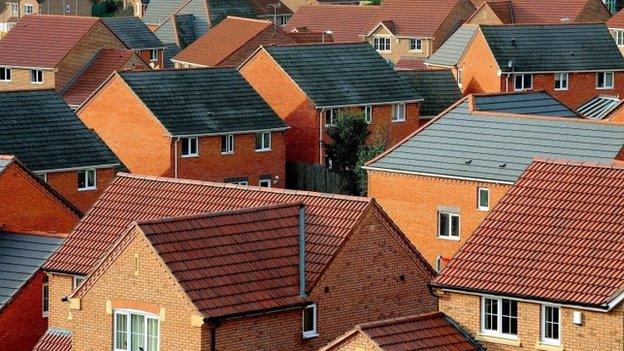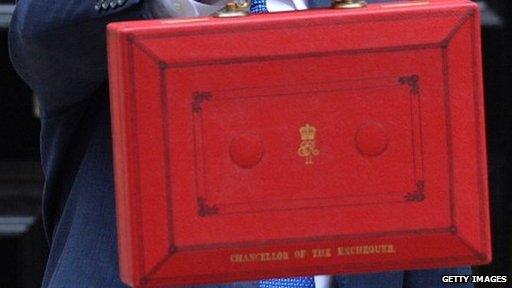Budget 2015: Buy-to-let tax break to be cut
- Published

Buy-to-let landlords face cuts in the amount of tax relief they can claim on mortgage interest payments, the government has said.
The amount that landlords will be able to claim will be set at the basic rate of tax, which is currently 20%.
The move is aimed at creating a "level playing field" between homeowners and investors, chancellor George Osborne said.
The change will be introduced over four years from April 2017.
Currently property investors can claim tax relief on their monthly interest repayments at the top level of tax they pay, meaning the wealthiest can claim as much as 45%.
Mr Osborne said the current system gave buy-to-let landlords "a huge advantage in the market", compared with home buyers.
"The better-off the landlord, the more tax relief they get," he said.
Buy-to-let properties now account for over 15% of new mortgages, something the Bank of England warned last week could pose a risk to the UK's financial stability.
Separately, Mr Osborne said tax relief for people who rent out a room in their home would be increased from its current level of £4,250 - where it has been frozen for 18 years - to £7,500 from next year.
'Major blow'
Nicholas Leeming, chairman of national estate agents Jackson-Stops & Staff, said the changes to tax relief would hit many small and older private investors.
"This is a major blow to a sector that is heavily reliant on private investors and who provide a crucial supply of property to the private rental sector," he added.
He also warned the move could hit the supply of rental properties making it harder for people who wanted the flexibility of being able to rent rather than buy.
Graham Davidson, the managing director of Sequre Property Investment, a firm which specialises solely in buy-to-let investments, said about half of its customers were cash buyers, meaning they would not be affected by the move.
But he said those that were affected were likely to increase their rental fee to compensate for the higher tax bill.
"The single biggest impact will be to tenants rather than landlords," he warned.
But the director general of the Council of Mortgage Lenders, Paul Smee, said the fact that the change was being introduced slowly would soften the blow.
"The phasing is important. We will need to understand whether this will have a behavioural impact on higher-rate buy-to-let landlords, but a four-year timetable does at least reduce the risk of sudden market shocks," he said.
Shares in house building firms fell, with Barratt Developments, external down 5.7% and Redrow down 5.2%.


Budget in depth
